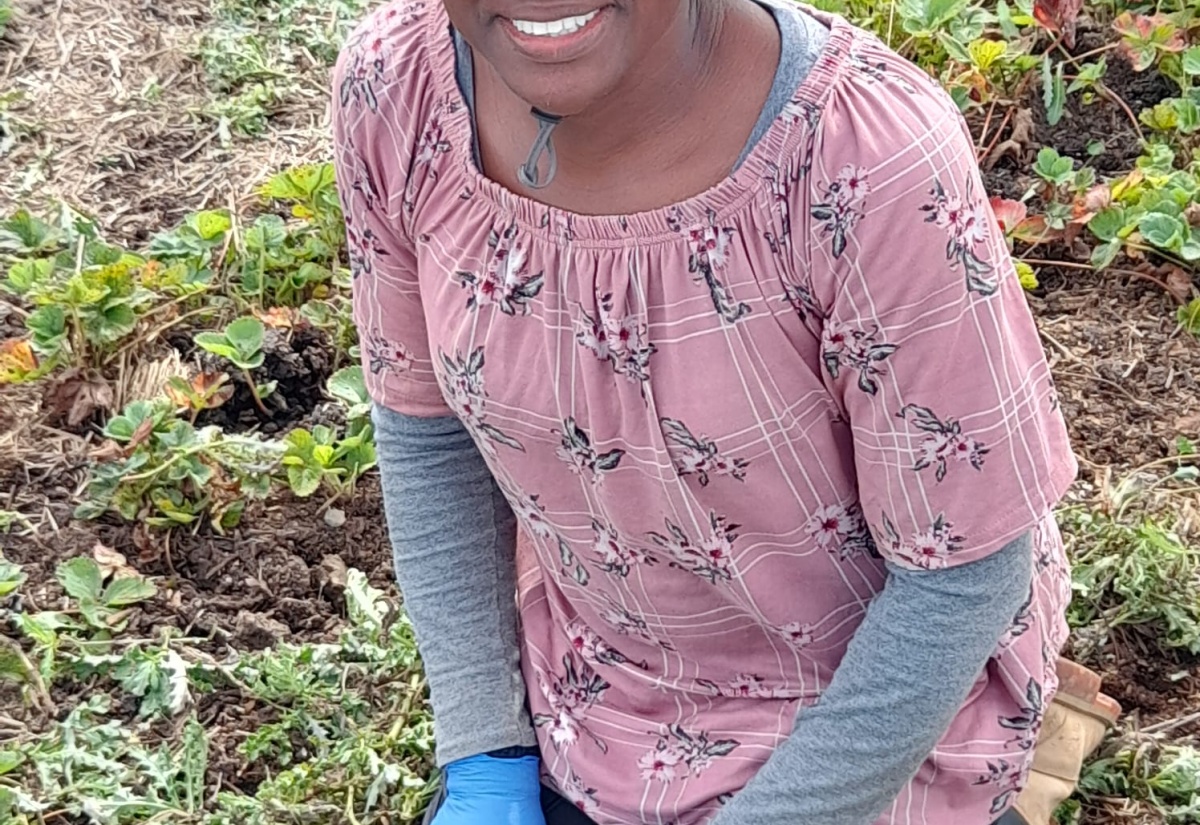Overseas Employment Programme Secures Jobs for 14,350 Jamaican Across North America in 2024
By: , May 25, 2025The Full Story
The Overseas Employment Programme continues to provide vital opportunities for Jamaicans globally, with 14,350 workers placed in jobs across Canada and the United States in 2024.
One such individual is Nicola Herron, who was one of the four persons with disabilities chosen to go on the farmwork programme last year in Canada.
A wife and mother of two, she was initially apprehensive about leaving her children—especially her younger son—to work overseas. However, with encouragement from her mother and husband, she decided to go.
“I was thinking – ‘how are they going to manage while I’m gone?’… because, knowing that my son is so close to me, I was wondering how he was going to manage. But then I said – ‘my mother will help with them… and she and God will take care of them’,” Mrs. Herron tells JIS News.
She shares that financial reasons were a key factor in her decision to join the programme.
“I thought going on this, maybe I would get more opportunities, because I was living with my mother. So I said, ‘maybe if I leave and go over there, I could work and see if I can get a house or something’. I talked to [my husband and] asked him, and he said, ‘yes, go ahead and take the opportunity,’ because he was struggling also with a job issue,” Mrs. Herron says.
She tells JIS News that she loved the environment of the organic vegetable farm in Ontario, Canada, where she worked for six months.
“[During] the first week… we [weeded] grass out of the carrots and the lettuce… and we harvested onions, beetroots and carrots. I enjoyed doing it. The other workers on the farm, they were so nice. I did not initially get the full understanding of how to weed the bush… because the rows were long. So some of the gentlemen there, they would help me,” Mrs. Herron says.
She shares that she did not experience culture shock in Canada and fondly remembers the kindness, respect, and social support her employer extended to workers.
“The supervisors, they were okay… they treated us great. I remember one day, I went to work and I wasn’t feeling well, and they said, ‘if you are not feeling well, you need to go and take the day off; do not stay here and work, you are not feeling well’.
So, they treat us with respect…and if we are not doing something right, they [would] come and say, ‘that’s not how you are supposed to do it… do it this way’. So they spoke to us with respect, and I didn’t see them treating the other workers in any different way,” Mrs. Herron says.
She encourages Jamaicans applying for the overseas work programme to make the most of the opportunity and give their best effort.
“When I was preparing to go, persons were saying, ‘you hear how [they] treat the workers in Canada?’ But I said, ‘everybody needs to go and get their own experience because everybody has different experiences, because where I was, the people were so respectful, and they treated us so good,” Mrs. Herron points out.
“It’s a great opportunity, and all you have to do is just take the opportunity and go and experience it for yourself. I realise they like us to do their work, they do not like persons that waste time. So you have to put in the hard work; [if] you get something to do, just do it and follow the company rules,” she adds.
Upon returning to Jamaica, Mrs. Herron achieved several personal goals, including improving her living conditions.
“I was living with my mom. Now, we got a place to rent and I was able to buy my stove and other furniture that we needed in the house,” she tells JIS News.
Meanwhile, Mrs. Herron, who is currently studying horticulture at the Abilities Foundation, is set to return to Canada to work in the farmwork programme.
“I expect to be going back and getting the work done, saving and to try see if I can get my own place. My aim is not to go and to squander what I’m working, because I have a goal, and I need to meet that goal,” she declares.


